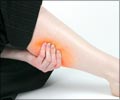- Effect of policosanol on platelet aggregation in type II hypercholesterolemic patients - (https://pubmed.ncbi.nlm.nih.gov/10093795/ )
- Policosanol - (https://www.sciencedirect.com/topics/medicine-and-dentistry/policosanol )
- Effects of policosanol on older patients with hypertension and type II hypercholesterolaemia - (https://pubmed.ncbi.nlm.nih.gov/12099160/ )
- Policosanol supplementation significantly improves blood pressure among adults: A systematic review and meta-analysis of randomized controlled trials - (https://pubmed.ncbi.nlm.nih.gov/31331588/ )
- Information about Policosanol - (https://www.medindia.net/doctors/drug_information/policosanol.htm )
Policosanol Medication Information
Discover comprehensive details about Policosanol, including its pronunciation, uses, dosage instructions, indications, and guidelines on how and when to take it or avoid it.
The updated prescription information covers potential side effects, precautions, warnings, and storage recommendations.
Additionally, explore the Policosanol brands available in India and internationally, along with pricing information. For personalized advice, consult your healthcare provider.
Generic Name : Policosanol Therapeutic Classification : AntilipemicsBrand Names or Trade Names of Policosanol
India :
Overview of Policosanol
• Policosanol is a dietary supplement that may help in cholesterol reduction.• It is a natural product obtained from plant sources such as sugarcane and beeswax.
Why is Policosanol Prescribed? (Indications)
Policosanol is prescribed to decrease the amount of cholesterol in the blood by reducing the cholesterol synthesis in the liver and increasing the breakdown of bad or LDL cholesterol.It is also recommended for improving blood circulation by reducing the platelet adherence or stickiness in patients with atherosclerosis, stroke (narrowing of blood vessels causing reduced blood flow or oxygen supply) or intermittent claudication (pain in the legs due to the obstruction of arteries).
When should Policosanol not be taken? (Contraindications)
Policosanol should not be used in patients who are:• Allergy to the policosanol drug
• Pregnant or plan to become pregnant
• Breastfeeding
What is the dosage of Policosanol?
• The recommended initial adult dose of policosanol is 5 to 10 mg once daily taken with the evening meal since the hepatic synthesis of cholesterol is expected to occur at night.• The maximum dosage is 20 mg daily usually taken as 10mg in two divided doses.
• The usual adult dose in treating intermittent claudication is 10mg two times daily with food.
How should Policosanol be taken?
• Policosanol comes as a capsule or tablet which should be taken by mouth.• It must be swallowed whole with a sufficient quantity of a glass of water preferably taken before bedtime.
What are the warnings and precautions for Policosanol?
• Dietary changes and regular exercise are needed along with the policosanol adjunctive therapy.What are the side effects of Policosanol?
Gastrointestinal: Diarrhea, nausea, constipation, stomach pain, heartburn, increased appetiteCardiovascular system: Abnormalities in blood pressure level
Central Nervous System: Headache, somnolence, dizziness, sleeplessness, nervousness
Skin: Rashes, skin irritation and pruritus
Others: Weight loss, joint pain, increased urination, bleeding from the nose and gums, raised level of liver enzymes
What are the other precautions for Policosanol?
• Policosanol should not be used as a first-line treatment for treating hypercholesterolemia but may be regarded as a second line agent in patients who cannot take HMG Co-A reductase inhibitors or other lipid-lowering medications.What are the Drug Interactions of Policosanol?
• Policosanol should not be taken together with blood thinning agents such as aspirin or dipyridamole due to the increased action of anticoagulant or antiplatelet properties.What are the storage conditions for Policosanol?
• Store at a room temperature below 25°C away from excess moisture and light.• Keep out of reach of children.










